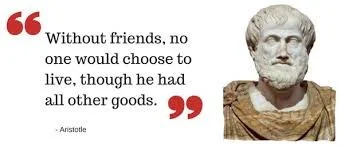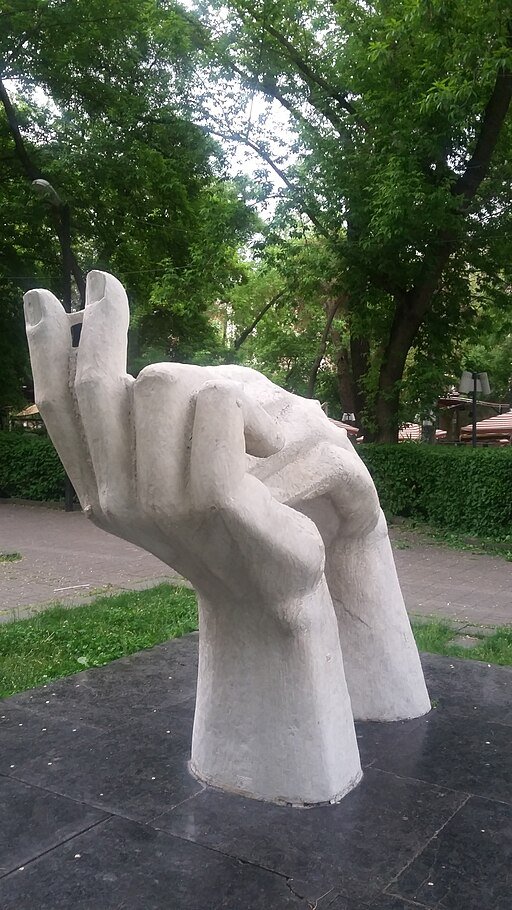Friendship
Autumnal Camping
Ruby in setting sunlight, Lake Michigan Recreation Area, September 22, 2023
Recently my friend Ruby and I went camping. For three glorious late-summer days we tented at the Lake Michigan Recreation Area, took long hikes through the Nordhouse Dunes Wilderness Area, played and swam in Lake Michigan, and enjoyed the solitude of a nearly deserted campground. On our last evening there, just a few hours before the autumnal equinox, we sat atop the dunes to bask in the last sunset of summer.
As you probably know, Ruby is a lovely reddish Golden Retriever. She’s six years old, and she joined our household in January 2020. What you might not know, however, is why I call Ruby my “friend.” Colloquially, people in the modern West say dogs are man’s (and woman’s) best friend. But do I really want to say Ruby is my friend? If we use language carefully, shouldn’t we restrict friendship to fellow humans and not extend it to companion animals? That depends. It depends on how we understand what friendship is and why it matters. And on these topics there’s surprisingly little consensus and strikingly high anxiety in contemporary society.
Aristotle on Friendship
Among the ancient Greek philosophers, only Aristotle offers an extended account of friendship, giving it two of ten chapters (chapters 8 and 9) in his Nicomachean Ethics. His account of friendship (philia) encompasses almost any relationship where people have mutual attachments: family, marriage, business partnerships, the state, etc. And when he zeros in on three kinds of friendship proper, only one comes close to what contemporary philosophers think genuine friendship involves.
Aristotle distinguishes friendships of either pleasure or utility from friendships of virtue. Unlike friendships in which we care about others because of the pleasure they give us or because of how they are useful to us, in friendships of virtue we care about them because of who they are—because of their virtuous character, in Aristotle’s terms. As Bennet Helm indicates, most contemporary philosophers restrict genuine friendship to this third kind: it captures our sense that we care about our friends for their own sakes, and not simply because of what we can get from them. (For a contrary view, see “Three Lessons from Aristotle on Friendship” by Emily Katz.)
Mutual Care
“Hands of Friendship” sculpture by Ara Harutyunyan in Yerevan, Armenia. Photo by 23artashes, CC BY-SA 4.0, via Wikimedia Commons
Mutual care is crucial to a genuine friendship: a friend needs to care about me for my own sake, and be cared about by me in the same way. True friends mutually care about each other because of who they are, sharing in both life’s joys and its sorrows. This requires unusual levels of trust, affection, and intimacy. It also calls for common interests and pursuits.
By itself, no one of these features distinguishes friendship from other relations. Mutual care, trust, affection, and intimacy also characterize good marriages and healthy families. Unlike most marriages, however, friendships do not typically involve sexual intimacy. And unlike the families into which we are born or adopted, we can choose our friends, even though, as Ralph Waldo Emerson says in his essay “Friendship” from the 1840s, sometimes our friends come to us “unsought” (Emerson, Essays and Lectures, p. 342).
Still, the constellation of mutual care, trust, affection, intimacy, and shared interests and pursuits, when taken as a whole, serves to distinguish friendship from other relations with the adults in our lives: casual acquaintances, immediate neighbors, colleagues at work or in a profession, comrades in a common cause, fellow citizens, or “friends” and “followers” on social media. People in these other relations—acquaintances, neighbors, colleagues, etc.—can, of course, become our friends. But that adds a new dimension, and some unique challenges, to how we interact with them. Moreover, it makes no sense to expect all of these folks to be our friends. Friendship is a special connection requiring both sustained attention and long-term commitment.
Friendship Deficiency
Precisely because it is special, friendship can be hard to find and even harder to maintain. In a recent New York Times column, David French cites an American Perspectives Survey that shows a dramatic increase in the percentage of Americans who report they do not have a single close friend: it quadrupled between 1990 and 2021. The difficulties with friendship seem especially acute for men in the United States and, I suspect, in Canada as well. The same American Perspectives Survey indicates that, by 2021, 15 percent of men reported no close friends. And Sharon Carpenter’s more recent analysis of the “male loneliness epidemic” claims a marked “friendship deficiency” severely affects American fathers.
There are many social scientific descriptions and explanations for these trends. Philosophically, current difficulties with friendship raise two questions. First, why does friendship matter? Second, in what sort of society could friendships flourish? Let’s consider why friendship matters.
Friendship Matters
To begin, friendships are important for the people in them. Sharing experiences and ideas and activities with our friends makes us more complete persons. It opens us to both affirmations and criticisms that are otherwise unlikely to be given or hard to accept. It gives us space to foster both the generosity and the independence that characterize human maturity. And the affection and respect good friends feel toward each other makes their friendship a source of both joy and consolation.
That’s why friendships are important for society as well. We can regard them as informal schools for social solidarity. We don’t enter our friendships for the sake of such schooling, but the flourishing of friendships can have this effect. Being friends teaches us how and why to care for others. It fosters practices of trust and transparency that every social institution needs. And it not only encourages us to take responsibility for our own attitudes and actions but also helps us imagine and invent creative alternatives to oppressive social patterns. A society that fails to promote good friendships will be one where trust and social solidarity suffer.
Unfortunately, as my blog posts “Belonging” and “Common Ground” suggest, that’s precisely the sort of society many of us inhabit. And this raises the question, What sort of society do we need in order for friendships to flourish? I plan to address this question in a separate post.
My Friend Ruby
For now, let me return to my original questions. Why do I call Ruby my friend, and is it appropriate to call companion animals friends? I call Ruby my friend because I care about her for who she is, and I take delight in her daily company. We not only share interests and pursuits, such as camping together, but also experience levels of trust and affection that are difficult to describe. It’s so that Ruby cannot put any of this into words. This makes it hard to tell whether she genuinely cares about me for who I am (and not simply for the belly rubs and tasty treats I give her!). But I like to think she does, and this makes our mutual attachment even stronger.
So I have no problem calling certain companion animals friends. Ruby is my only living animal friend, just as Hannah and Rosa were before her. I also have dear human friends, some nearby, and many who live hundreds and even thousands of miles away. When they come to visit, perhaps we can go camping together. Ruby would love that. And so would I.
Ruby’s invitation to our festival of friends.




